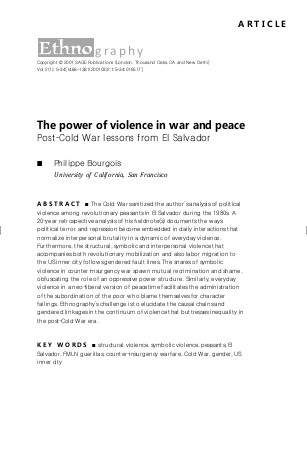
The Cold War sanitized the author’s analysis of political violence among revolutionary peasants in El Salvador during the 1980s. A 20-year retrospective analysis of his fieldnote(s) documents the ways political terror and repression become embedded in daily interactions that normalize interpersonal brutality in a dynamic of everyday violence. Furthermore, the structural, symbolic and interpersonal violence that accompanies both revolutionary mobilization and also labor migration to the US inner city follows gendered fault lines. The snares of symbolic violence in counter-insurgency war spawn mutual recrimination and shame, obfuscating the role of an oppressive power structure. Similarly, everyday violence in a neo-liberal version of peacetime facilitates the administration of the subordination of the poor who blame themselves for character failings. Ethnography’s challenge is to elucidate the causal chains and gendered linkages in the continuum of violence that buttresses inequality in the post-Cold War era.